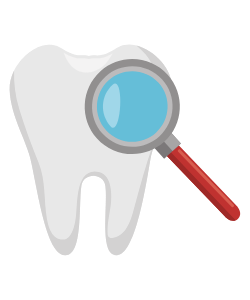Do you make an appointment with your dentist each time you experience a toothache? It probably depends on the severity of your discomfort. Have sharp pain that seems to be getting worse? Sure, you'll see your dentist as soon as you can. Minor pain that disappears as quickly as it appeared? Perhaps not, and you might just assume that the issue was insignificant. However, if you have a toothache that appears to be centred around a dental implant, you should schedule an appointment with your dentist, even when your discomfort isn't all that substantial.
Not Quite a Toothache
Calling it a toothache might be slightly misleading. Dental implants are made up of the titanium alloy bolt inserted into your jaw with the tooth itself being a prosthetic crown (usually made of porcelain) connected with an abutment. You can't technically experience a toothache with a dental implant since the structure is artificial, and as such, is incapable of registering any sensation. The discomfort is emanating from the natural tissues surrounding the implant.
Peri-Implant Mucositis
This discomfort can be one of the early warning signs of an implant complication known as peri-implant mucositis. There's an inflammation of the gingival tissues around the implant, which is causing the sensation of a toothache. The gums around the implant can also change appearance, becoming swollen and taking on a red hue. They may also be painful to touch, and while you shouldn't actively touch the area, some contact is unavoidable when brushing your teeth or even when eating. This discomfort is something that must be assessed by your dentist.
Peri-Implantitis
Dental intervention is crucial when dealing with peri-implant mucositis. It's a precursor to a more serious complication known as peri-implantitis. This is an infection accompanied by bone loss, when the bone supporting the implant (the alveolar bone) is retracting, breaking the integration with the titanium implant. This can result in total failure of the implant. Your dentist will thoroughly treat your peri-implant mucositis, with their priority being to prevent it from escalating to peri-implantitis.
Cleaning and Antibacterial Treatment
Treatment involves a comprehensive cleaning and antibacterial treatment of the implant. This is achieved with a manual periodontal curette (a type of handheld scaling tool), along with a sonic scaling device. A slow-release antibacterial treatment (such as chlorhexidine gel) might be inserted into the applicable gingival tissues. Depending on the degree of infection, antibiotics can also be used. You will also require a radiograph to check for bone loss, and this may need to be repeated at your subsequent checkups.
Consider discomfort around a dental implant as an early warning system. If you don't heed this warning, you may develop a more serious complication, which can lead to the loss of your dental implant. Reach out to a dentist to learn more about dental implants and what to expect with them.
Share
